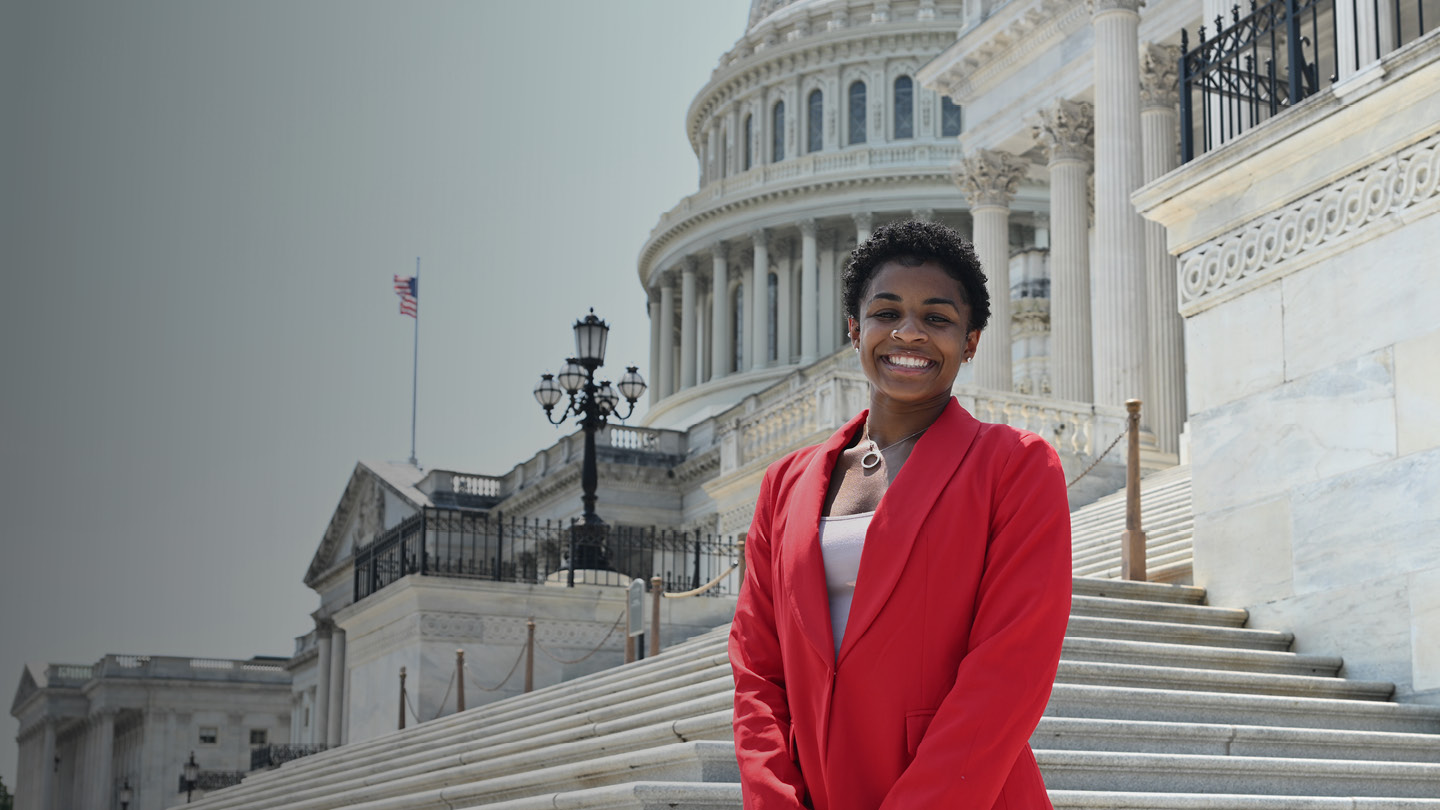Master of Science in Education Policy
As America’s first research university, Johns Hopkins has been developing education leaders for more than 100 years.
Ranked among the top education grad schools by U.S. News & World Report, our School of Education offers world-class master’s, doctoral, and certificate programs to advance your career in education. With online and part-time options, you can continue working while you gain valuable knowledge and skills. At the Johns Hopkins School of Education, we’re not just educating our students — we’re shaping the future of education.

Why the Johns Hopkins master’s in education policy program?
Shape the future of education
Engage in the Johns Hopkins tradition of excellence and innovation as you help shape the landscape of education. Our Master of Science in education policy equips you to design and inform policies that address the most pressing challenges in schools today.
Improve outcomes for students
Learn how to craft policies that contribute to student success through the lenses of equity and efficacy. This online program will empower you to analyze and refine policies that directly impact educational systems, ensuring that all students have the opportunity to thrive.
Inform data-driven policies
Master skills that can transform educational landscapes and outcomes by informing evidence-based policy. Our program focuses on the critical analysis of data to draft and influence policies that enhance the quality and effectiveness of education at local, state, and national levels.
America's First Research University
Founded in 1876 as the nation’s first research university, Johns Hopkins has been advancing knowledge and bringing discoveries to the world for nearly 150 years. It was founded on the belief that teaching and research are interdependent, and that a modern university must do both well.
Today, Johns Hopkins remains a world leader in both teaching and research, with more than 21,000 undergraduate and graduate students studying with esteemed faculty members across nine world-class academic divisions.
A commitment to education
Dedicate yourself to enhancing student learning and performance. Our programs equip educators with innovative strategies rooted in the latest pedagogical research to empower every student to achieve their full potential. Transform your passion into measurable educational results with Johns Hopkins University by your side.
Advance education
Step into roles that shape educational landscapes. At Johns Hopkins, we cultivate leaders adept at navigating complex challenges in education. As a graduate, you’ll have the insight to inspire others, the knowledge to develop policy, and the ability to foster community and student success.
Lead, learn, launch
Lead the charge in applying research to practice. Our cutting-edge programs emphasize the importance of data-driven decisions in building systemic change in education around the world. Become empowered to initiate change that is substantiated by evidence, ensuring your contribution to education is both impactful and lasting.
At Johns Hopkins University, we believe that education is an essential catalyst of transformative impact. Education lays the foundation for researchers, changemakers, and innovators to save lives, improve communities, and find solutions to our world’s toughest challenges.
The Johns Hopkins Master of Science in Education Policy prepares education leaders of the 21st century with the wide-ranging skills necessary to shape effective, evidence-based education policies.
Through this 33- to 36-credit program, students learn to navigate complex federal and state regulations; digest new initiatives; draft policy; and conduct financial analysis. They also are expected to come to a deep understanding of today’s educational inequities and the strongest educational models to correct them.
The program is delivered online, except for the first-semester hybrid course, Introduction to Education Policy, which includes an in-person, five-day residency in Washington, D.C. Students can also opt to include a three-credit experiential learning opportunity.
MEET OUR FACULTY
David Steiner
David Steiner, Executive Director of the Johns Hopkins Institute for Education Policy
“Education embodies the future of a nation: In the United States, education outcomes are flat, and the achievement gap between the haves and the have-nots is growing. Study with us and graduate ready to make an immediate difference in the futures of children in this country and beyond.”

The Master of Science in Education Policy prepares education leaders of the 21st century with wide-ranging skills necessary to shape effective, evidence-based education policies.
Interested? Learn more.

